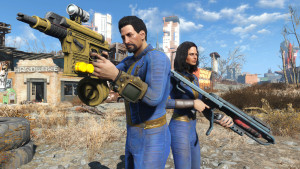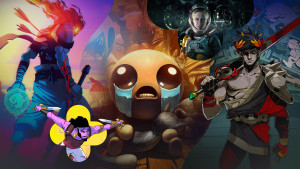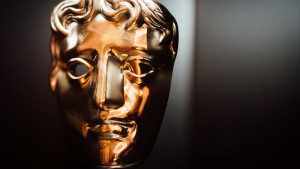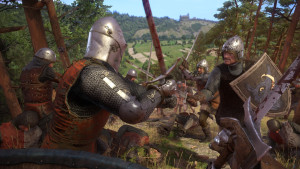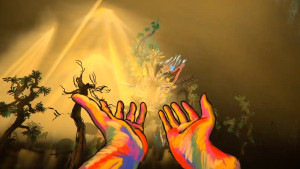Please support Game Informer. Print magazine subscriptions are less than $2 per issue
The Man Behind Assassin's Creed Unity's Arno Dorian On Comedy And Motion-Capture Make-Outs
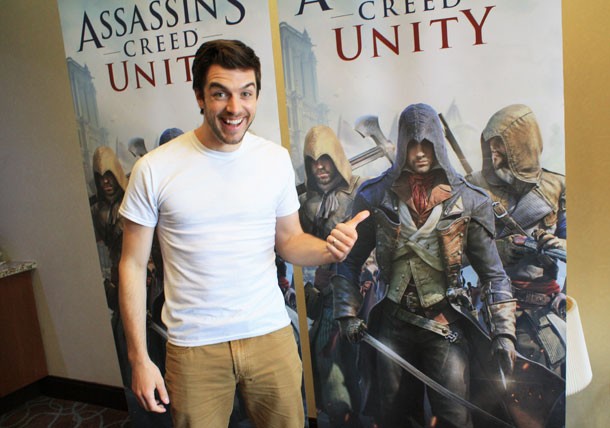
Dan Jeannotte has a history of doing radio voice-over work, improvisational comedy, and even some small parts for other Ubisoft video games. But taking on the role of Arno Victor Dorian for Assassin's Creed Unity, of whom he provides the motion-capture and voice performance, is a big step up for the Canadian actor. At Comic-Con this year, we got a chance to chat with Jeannotte about injecting humor into an Assassin's Creed protagonist who questions the authority of the Creed, and what it's like to perform an on-screen kiss while wearing a motion-capture leotard with a camera mounted a foot in front of your face.
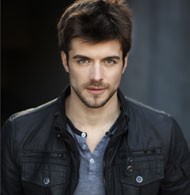
Game Informer: Have you played the Assassin’s Creed games? Are you a gamer? Do you like video games?
Dan Jeannotte: I’m not really a gamer. I was a computer gamer back in the day. I got really into role-playing games. I guess, I called them role-playing games then, but they’re not what they are now. What got me into games was like King’s Quest and Space Quest – the old Sierra games. Monkey Island, stuff like that. Then I sort of moved into playing like longer strategy games like SimCity or Civilization. I’m always a bit worried that I would become like an addict if I started playing because I have played some games. I played Grand Theft Auto: Vice City for six months straight every day and I was like, “I should probably stop. I should do something else.” So I’m not a huge gamer now, but I think what’s happening with games now is amazing. The way that they are really focusing on storytelling – even more-so than they used to – and having an emotional arc is amazing. When I read the script for this I was really impressed by the commitment to an emotional arc. A journey for the character that wasn’t just black and white, good guy fights the bad guys. It was much more complicated and nuanced.
Some video games leave the protagonist as kind of a blank slate. The idea is that the player inserts themselves. Do you feel like Arno is like that?
I think what’s cool about being able to play a player character… it’s quite an honor and it’s cool because you know that the player is going to be projecting themselves onto this main guy. So in my mind, it was about making Arno relatable, but also admirable, like you want to be this guy, you know? Once the story gets going and he kind of grows up a bit – because in the beginning of the story he’s young and inexperienced and kind of a brat, which I think people can identify with because I used to be like that – and then through the course of the things that happen to him, there are some tragic events that occur, he’s forced to take responsibility and then he really becomes someone who I think is quite admirable. You can project yourself onto him because he’s a badass and he’s funny and those are things we wish we could be. He can take care of a situation and then make a snarky remark about it, like in the way of one-liners.
So he’s genuinely funny? I know you haven’t really played them, but in Assassin’s Creed II, the lead Ezio was pretty charismatic and funny. And then for Assassin’s Creed III and Black Flag? They were more blank-slate characters.
I understand that Connor was stoic and super serious.
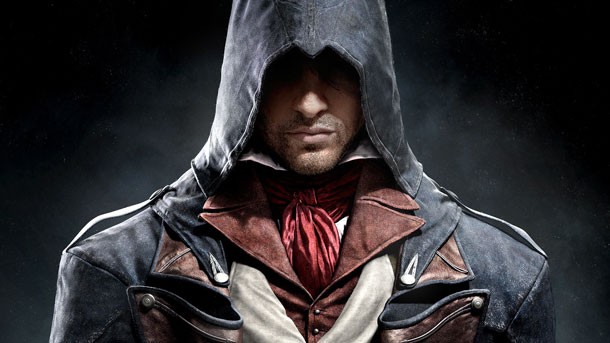
But you feel like Arno is a little more charismatic?
He is, definitely. He uses humor as a bit of a weapon – or as a bit of a defense, rather, not necessarily a weapon – to kind of deal with the craziness around him. He’ll kind of make jokes – snappy, sarcastic little remarks as a kind of shield. I do think he’s funny. It’s always just these little one-liners. What’s fun about it, too, is that he questions what’s going on, so when he becomes a part of the Brotherhood he’s not just a 100-percent convert. He’s a bit like, “What is this weird thing you guys have going on?”
He’s skeptical. I think that that’s fun in this kind of game because obviously there’s a certain amount of suspension of disbelief that’s needed to get into it. To have the player character not poke fun at what’s going on but rather raise legitimate questions, “Oh, so you guys all hang out in this underground cavern together conducting secret meetings?”
You guys all wear similar clothes with hoods? You don’t think that makes us stand out at all?
Yeah, so I think it’s fun to have a guy do that. He doesn’t undermine it, he just points out…
Do you put on an accent for him?
Yeah.
Or are you putting on an accent now…? You are from Canada, right?
Yeah, you can’t tell [laughs]. Yeah, I am doing an accent – we haven’t actually talked about this yet, but it takes place in – what do you know about the game?
I know it takes place during the French Revolution. That’s pretty much about all I know [Editor note: this interview took place before our cover story was complete].
It takes place in Paris during the French Revolution, using the cinematic conceit of having historical British accents like you would in something like the movie Gladiator.
It’s one of those things that strangely makes sense, even though it absolutely makes no sense. It just sounds appropriate.
Yeah, it sounds appropriate. And I think it’s just become common enough in films that we get it now. The past is British [laughs]. So I’m doing a British accent which, they certainly discussed doing French accents, but French accents just don’t come across as … cool? As British accents do? So, yeah I’m doing a British accent but also speaking a bit of French.
Head to page two to learn the length of a typical Assassin's Creed script.

The view from the room of our interview. Ubisoft didn't want Jeannotte to run the parkour course for fear of injury or worse – embarrassment.
So, you were able to read through the script in full before; had you already gotten the part?
No, before I got the part I’d only read the few audition scenes that I was given. And then, once I got the part, I got to read, I would say, about half of the script when we started production because they were still working on it.
How long is an Assassin’s Creed script?
I want to say it would’ve been somewhere around 350 pages or so.
That’s actually less than I thought.
But that is just the main storyline. It’s not any of the side missions, it’s not any of the barks – the little things that I say throughout the game – it’s just the main storyline: 350 or 400 pages. We got about half of it in something like 220 pages. So, yeah, mid-400 or so. Quite hefty; you work on a film and it’s going to be, tops, 120 pages. And this was massive. Since then, I’ve done all of these voice sessions where I’ve got 60 pages of sound effects – not sound effects, but the grunts when you get hit and stuff, and then all the side missions.
What kind of technology was employed for the voice and motion capture?
The studio is set up with something like 100 cameras all over, and we’re wearing those motion-capture suits with the reflective markers on them. And then we’re also being followed by a couple handheld cameras, a couple booms, and then we have these helmets that have a camera here in front of our face and a mic, so we’re personally being mic’d. Our face is being filmed, and then we’re being filmed from like 100 different angles.
Do you like that process? Is it hard to get in character?
It’s weird at first, for sure. I got used to it surprisingly quickly. I thought, “This is going to be strange to have to hang out in these suits,” but it becomes a second skin – well, a second skin without you feeling naked. Yeah, it’s pretty normal. The weirdest thing is probably the helmets and the helmet cams, because over the course of the months I worked on it we cycled through a few different types of cameras. I guess they got better, but, generally, you’re wearing this thing and there’s these thin metal bars coming out to about here, and you’ve got a camera about a foot away from your face. So when we’re acting with each other, we can’t get closer than this to each other, unless I lift up my head a bit so my thing goes like that and your put yours down a bit so yours goes like that. So that takes some getting used to.
So no kissing sequences then? Or do you have to kiss with your faces a foot apart?
We did shoot a kissing scene, and the way we did it was once without our helmets on so that we could understand what the scene was like and get the right emotional tone for it. Then we did the scene again – we had to put the helmets on because we needed the facial capture – and we tried to do the scene exactly the same. And then when it came time to kiss, we literally just had to go [pantomimes kissing] like a foot far from each other.
Can we see that on the bonus features on the disc?
They filmed it for some marketing thing – I think it was Ubisoft, like an internal marketing thing – but they did film us rehearsing that scene because they thought it was funny. So yeah, the helmet takes time to get used to, but you learn to work with it, and I had enough days of working on this that I became pretty comfortable with it. You learn what actions are impossible and what is possible.
Head to page three to learn about Jeannotte's comedy troupe, Uncalled For, and our shared appreciation for Mr. Show.
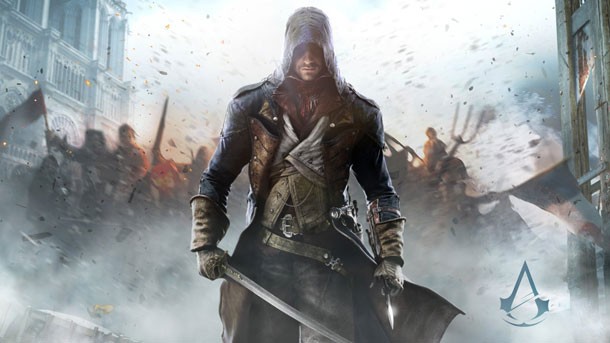
While working on Unity, was this your full-time acting gig? Or were you able to tackle other opportunities?
It was. Yeah, it definitely made it more difficult to take on other jobs, because you have to be open and available to do that, and this has been my commitment I’ve been committed to this so it’s been tricky. But what has been easier to do is, I’ve done some voice work like some radio ads and stuff, and I still do live improv shows because that’s just one night. I work with a comedy troupe, and we still get together to write sketch and do comedy shows.
What’s your comedy and improve background? Are you in a sketch comedy group?
Yeah, I’m in a troupe and we’ve actually been together for about 15 years.
What’s it called?
Uncalled For. We’re not huge or anything, but in Montreal and Toronto, we’ve toured across Canada and we’ve done some shows in New York and Seattle, and Portland, but mostly it’s been in Canada, and mostly in Montreal and Toronto. We’re kind of dual city-based. We met in college, started doing improv together, became really close friends – they’re still my best friends, these guys – and now we’re a bit spread out. We have half of us in Montreal, half of us in Toronto, and then we have, I guess we’d call them satellite members, in Vancouver and L.A., as well. But we did improv for years, toured, hosted sort of a late-night cabaret kind of show in Montreal for many years, and started writing sketch-comedy shows about five years ago, which I think is our forte. We sort of found our niche there, and it’s wonderful. It’s exactly what I like doing because it’s collaborative, it’s imaginative, it’s fun. I’m doing it with my best friends who are the funniest people I know. And the style of thing we do is not – I mean, it’s dumb, because it’s sketch comedy, which is always sort of silly – but we like to do stuff that’s a bit more cerebral, a bit more absurd, and we like to use sketch comedy to address really big ideas, like either philosophical or kind of techno-social ideas like I don’t know – biotechnology: How do we feel about that? In a sketch-comedy point of view? Or like, time travel. We had a whole show that was dipping in and out of time travel and whether the Large Hadron Collider might have been not responsible for the possible end of the world but maybe created the world in the first place. Time is a big loop. And so we like to deal with weird sci-fi-ish things like that.
Who are your influences? In terms of sketch comedy, my go-to is always Mr. Show.
That’s what I was going to say.
I’m Mr. Show obsessed – it’s a sickness I have. I quote it constantly and no one knows what I’m talking about.
Yeah, Mr. Show is a huge influence for me. What’s interesting about my team is that we all come in with our own influences, and that leads to something a lot richer than if we all only had one influence then we might all be trying to replicate that one thing. But for me Mr. Show is huge in the way that all their show’s sketches transition into one another. That’s something we took on in our style, and it’s a bit of – as far as our sketch goes – it’s one of our defining characteristics. When we do shows it’s all interconnected, and we don’t do like, sketch, blackout, sketch, blackout. We tie everything together, sometimes in ways that make sense, sometimes in absurd ways.
But definitely Mr. Show, Kids in the Hall. I mean, we also get a lot of pleasure and influence from not just sketch comedy but other written stuff as well. Like David Ives is a playwright, who’s written some amazing short comedic pieces. And stuff like… other sketch-comedy troupes actually, that we’ve watched that have really blown our minds. These guys called The Pajama Men from Albuquerque, used to be called Sabotage – they’re incredible. And yeah so we just sort of draw influence from all over the place. Some of us are into pop culture, some of us less so. There’s certainly always these sci-fi, nerdy elements to our stuff, as well.
Is there room to improvise when it comes to performing for a video game?
Yeah! Well, we didn’t really do improv in the sense of like creating new, or ad-libbing lines. But what we would do in rehearsal is we’d do the scene as written, and then in the rehearsal we might change a movement or change a line a little bit and then we’d run it by asking, “Can we change that line, is that OK?” They were always quite open about collaborating. Especially because I, eventually, grew to understand the character pretty well, so a line would be written in a certain way, and sometimes I would say “You know, I think Arno might be a bit more aggressive with this line or he might say something a bit more crafty at this point.” And they were usually quite open to changing stuff. So definitely, collaboration happened. Not improv in the sense that you just go off-the-cuff and make up whatever but, collaboration definitely happened, and I love that.
Thanks to interns Dimitri Gedevanishvili, Harry Mackin, and Wayne Stainrook for helping with the transcription!


